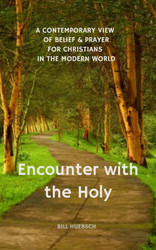Synthesizing the thinking of the most prominent scholars, Professor Edmund Chia discusses practically everything that should be known about Christianity's encounter with other religions in this comprehensive book. Topics include:
- the invention of the idea of World Religions and World Christianity
- the Bible and the church's attitude toward other faiths
- Vatican II, Asian Christianity, and interfaith dialogue
- the what, why, when, and how of dialogue
- the global ecumenical movement
- theologies of religious pluralism
- scriptural reasoning
- cross-textual hermeneutics
- comparative theology
- interfaith worship
- religious syncretism
- multiple religious belonging
- interfaith learning in seminaries
- Catholic schools and multiculturalism
- the mission-dialogue paradox
- and Christian-Muslim dialogue on Original Sin and Redemption
Product Preview
| Format: | Paperback book |
|---|---|
| Product code: | LP8422 |
| Dimensions: | 6" x 9" |
| Length: | 272 pages |
| Publisher: |
Liturgical Press
|
| ISBN: | 9780814684221 |
| 1-2 copies | $26.35 each |
|---|---|
| 3-9 copies | $25.15 each |
| 10-49 copies | $23.96 each |
| 50-99 copies | $23.36 each |
| 100+ copies | $22.46 each |
Praise
Edmund Chia has provided a marvelous service for the teaching of interreligious dialogue at practically every level of theological education. Only someone who, like Chia, has spent his life in actual interfaith dialogue could lay out the issues so clearly and simply, but with real profundity. This is a wonderfully conceived book, very learned and yet very accessible at the same time. It is truly what it sets out to be: a summa of interreligious dialogue. Teachers will find it teachable. Students will find it readable. Everyone will find it valuable.
Dr. Chia discusses the changing shape of world Christianity and the history and theology of interfaith dialogue as an astute scholar and a leader of dialogue for decades. This book is a summa in the best sense: comprehensive, erudite, clearly organized, and yet accessible and not jargonish. It is a gift to students, teachers, and the church and deserves to be widely read.
World Christianity Encounters World Religion is a masterful summation of our multi-faceted religious reality that only the rare scholar and practitioner as experienced, insightful, and reflective as Edmund Kee-Fook Chia would dare to write. It is well-informed by the theology and lived experience of the church in Asia and attentive to the many ways in which Christians have encountered and do encounter people of other faith traditions in Asia's diverse contexts. A text for teaching, it will work well in an introductory course on world Christianity or in a course on interreligious dialogue—and yet it can also serve as a handy reference work for leaders and practitioners in the field.
Drawing on his broad scholarship and years of practical experience, Dr. Chia has indeed assembled a 'summa' of interfaith dialogue. He carefully and clearly introduces students/readers to the history, the methods, and the promise of religious traditions and peoples coming together to learn from each other and work together to fix the world. He both informs and inspires.
This is an original and comprehensive introduction to the encounter between world Christianity and world religions. The book covers the latest scholarly debates, yet it is written in comprehensible language. Rooted in his longtime Southeast Asian experience, the author succeeds in writing about polarities in thinking about inter-faith dialogue in a holistic way.
This book provides a veritable summa on religious dialogue up to present days, a very good introduction for those who wish to have serious and comprehensible information of the topic, a precious text for an undergraduate education institution, as well as an useful handbook for specialist and dialogue operators, considering also that chapters can be read independently one from the other, in order to quickly get essential notions for specific meetings or lectures.
Most suitable for undergraduate college or university students, or as a general aid for further education. More advanced students, however, can also profit from using the text as a "starter kit" that would point them, particularly through the Suggestions for Further Reading at the end of every chapter, to works that develop each topic in more detail. Instructors will definitely find this text an immense help to introduce their students to practically all of the main sub-areas that comprise interfaith dialogue.
Professor Chia is ideally suited to write this book. The book is recommended to all academic libraries and seminaries particularly where people are preparing to do mission work.
The strengths of this book are its breadth and its clarity of exposition.
Chia is to be commended for his insightful, comprehensive, informative and inspiring summation of interfaith dialogue. I thoroughly recommend this book.
Chia’s book is indeed a summa on interfaith dialogue. Thus, while for others ‘interfaith’ represents a ‘new’ contextual reinterpretation of religious creeds, for Edmund it ‘is used here broadly to represent all forms of faith engagements: between different religious faith traditions, between different Christian faith denominations, and with peoples who do not identify with any religion.’
Author
Edmund Chia, originally from Malaysia, headed the interreligious and ecumenical office of the Federation of Asian Bishops' Conferences from 1996 to 2004. He then served on the faculty of the Catholic Theological Union in Chicago for seven years and, since 2011, has been teaching at the Australian Catholic University in Melbourne. He has an MA in religion from the Catholic University of America and a PhD in intercultural theology from the University of Nijmegen in the Netherlands.








